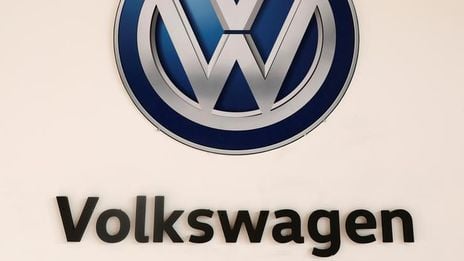NEW YORK (Reuters) - The scandal over German automaker Volkswagen’s (>> Volkswagen AG) rigged U.S. diesel emission tests is putting pressure on the secondary prices of term loans for auto suppliers as loan investors assess the fallout on the sector.
The average bid in the automotive sector fell to 98.42% of face value on Monday, September 28, down more than 50bp from 98.95 on September 21, before the widening Volkswagen scandal started to hit its peers.
“The scandal was like rock thrown into a quiet pond. Now people are watching the ripples,” a loan investor said, explaining depressed prices for auto sector loans.
The drop was steeper than the average bid for the overall loan market, which dropped 23bp to 97.23 in the same time.
Three loan names in particular are taking the brunt of Volkswagen’s pain. Global fuel systems supplier TI Automotive’s [TIATO.UL] dollar term loan dropped 2.25 points due to the emission crisis and was trading at 97.5-98.5 on Tuesday.
Publicly-listed US car parts supplier Federal-Mogul’s term loan B dropped 2.25 points to 95.25-96.25, and its term loan C dropped 3.75 points to trade at 93.75-94.75 on Tuesday. Auto parts supplier Key Safety Systems term loan also moved 2.5 points lower to 97.25-98.25 on Tuesday.
Although the price falls show loan investors’ concern about the future performance of auto sector loans as investigations into Volkswagen’s manipulations of diesel car tests widen to other countries, fears were somewhat allayed by the auto suppliers’ diverse customer bases.
Federal-Mogul’s sales exposure to Germany, not just Volkswagen, was 20% in 2014, according to the company’s SEC filing.
The customer base of auto suppliers is “ pretty well diversified,” loan sources said, without too much concentration of overall sales to Volkswagen. The German carmaker is expected to continue to be a customer, albeit a less robust one as it faces civil lawsuits and criminal damages following the departure of the company’s CEO and senior development executives.
“Volkswagen is not going away,” a loan investor said.
Loan investors remain cautious, however, due to the scale of the scandal, particularly in Europe, where diesel cars account for a larger proportion of auto sales than the U.S. Roughly half of the cars sold in Europe are diesel-based.
“There is a little weakness as they see how it plays out. At least one or two points,” another loan trader said.
Secondary prices could continue to slide if the repercussions widen further, the source said. Deutsche Bank said in a report that auto supplier exposure to Volkswagen’s U.S. diesel sales was limited but the impact would be more severe if the scandal expanded to Europe.
Volkswagen announced on Wednesday that nearly 1.2 million of its cars sold in the UK are fitted with the software behind the emissions scandal, including diesel powered cars with the VW, Audi, Seat and Skoda brands as well as VW commercial vehicles.
Germany’s transport minister earlier accused Volkswagen of manipulating tests in Europe. Environmental campaign group Transport & Environment (T&E) said on Monday there was an industry-wide problem, showcasing data that some new Mercedes, BMW and Peugeot cars used 50 percent more fuel than tested.
(Editing By Tessa Walsh and Jon Methven)
By Lisa Lee





